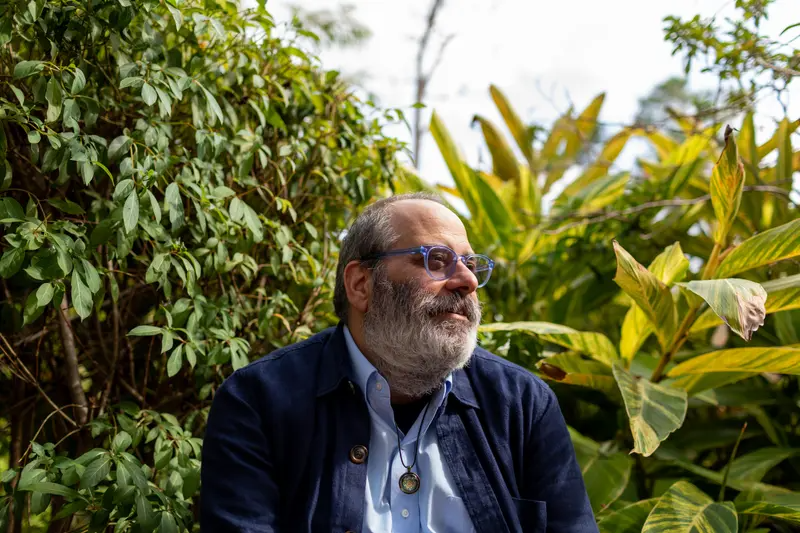States
Professors In Florida Face Teaching Obstacles In The Face Of Anti-CRT Legislation

Anti-CRT Legislation: After Governor Ron DeSantis’ strict CRT ban, Florida’s academic community is reeling. Several academics, like University of Central Florida associate sociology professor Jonathan Cox, have had to cancel classes and remake their teaching techniques.
Cox’s situation typifies state instructors’ struggles. The Individual Freedom Act, known as the “Stop Woke Act,” prohibits implying one race or gender is morally superior to another. Teachers cannot make kids feel guilty for previous inequality. The Act opposes promoting racial colorblindness as a virtue.
The law’s far-reaching effects caused UCF sociology professor Cox, the only Black professor, to drop “Race and Social Media” and “Race and Ethnicity.” These classes covered essential topics, including colorblind racism and the fiction of a color-blind society, giving students a solid knowledge of modern racial dynamics.
The Act threatens academic freedom and open conversations about systematic racism. COX’s cancellation of his classes shows instructors’ worry that teaching complex issues may hurt their livelihoods. Cox, who has yet to be tenured, highlighted his sensitivity in an atmosphere where voicing particular views may have career ramifications.
After Cox’s experience, several instructors changed their course curriculum to avoid legal issues. The need for more critical conversations on race and ethnicity in the curriculum raises concerns about restricting academic discourse on pressing social problems.
The academic community remains cautious while legal challenges to the Individual Freedom Act continue, concerned that the statute may hinder knowledge and critical topic study in the state’s education system. CRT disputes in Florida continue as instructors and students balance legal compliance and academic excellence.
Impact Of Anti-CRT Legislation On Course Cancellations
Governor Ron DeSantis’ Anti-Critical Race Theory (CRT) statute in Florida has had significant effects on academia, notably on courses that confront racism and Black communities. Professor Jonathan Cox’s agonized choice to discontinue his classes, “Race and Social Media” and “Race and Ethnicity,” highlights the difficulties educators confront in addressing race in the classroom. Open talks about racism and systematic inequality have been stifled by the legislation, raising fears among educators about career consequences.
Academic Freedom And Vulnerability Fear
The strict Individual Freedom Act has left many Black teachers, like Cox, feeling unsafe and unprotected in their academic endeavors. With the possibility of job loss, educators must tread lightly when discussing sensitive racial matters, creating difficulties in academic freedom in race discussions. Cox’s experience shows how difficult it is for instructors to teach children about racial prejudice while abiding by the strict Anti-CRT laws.
Balance Academic Integrity And Compliance
The elimination of classes that critically explore racism and question the color-blind society has generated worries about academic discourse in Florida’s schools. Students may miss out on critical learning chances on racial injustices as instructors cope with the Anti-CRT law. The academic community is wary of discussing racism for fear of legislative reprisals, even while legal challenges are filed. The future of Florida education hinges on the delicate balance between legal compliance and academic integrity.
Read Also: Hate Crime: White Guy Shoots 3 Black People Dead At Florida Business.
Racism And Academic Integrity
The strict Florida Anti-CRT statute has sparked a controversy regarding racial prejudice in education. Many Black academics and researchers, like Cox, struggle to retain academic integrity while avoiding legal issues. Retaliation and silencing of systemic racism conversations threaten a diverse and inclusive learning environment. As academics engage with racial dynamics, meaningful discussions and critical examination of racism are needed more than ever. Honest talks regarding racial prejudice are crucial to understanding underrepresented populations’ struggles and creating a more inclusive educational experience for all students.
Maintaining Culture And Identity Despite Legal Issues
The influence of anti-CRT laws on the academic curriculum has prompted issues about Black cultural heritage and identity in schools. With the elimination of classes on racial identity and discrimination, there is concern that Black communities’ experiences and narratives may be eliminated from education. To better comprehend Black communities’ history and present difficulties, educators and researchers stress the significance of including varied viewpoints and experiences in the curriculum. Cultural history and identity in education build a feeling of belonging and empowerment in students, creating a more holistic and inclusive educational environment that celebrates diversity and supports social equality.
Advancing Inclusion And Fighting Systemic Discrimination
While the Anti-CRT law is debated, educators and students are working to end systematic prejudice in schools. The ban on courses that address racism and structural inequities has raised questions about how education might promote social justice. Education should understand systematic bias and actively try to eradicate it and promote social justice, they say. Critical discourse and a more excellent knowledge of racial prejudice may help educators and students challenge systemic biases and create a more inclusive and equitable educational environment. Emphasizing inclusion and social justice in education helps create a generation of knowledgeable and sympathetic people who can fight structural prejudice and establish a more fair and equitable society.













You must be logged in to post a comment Login